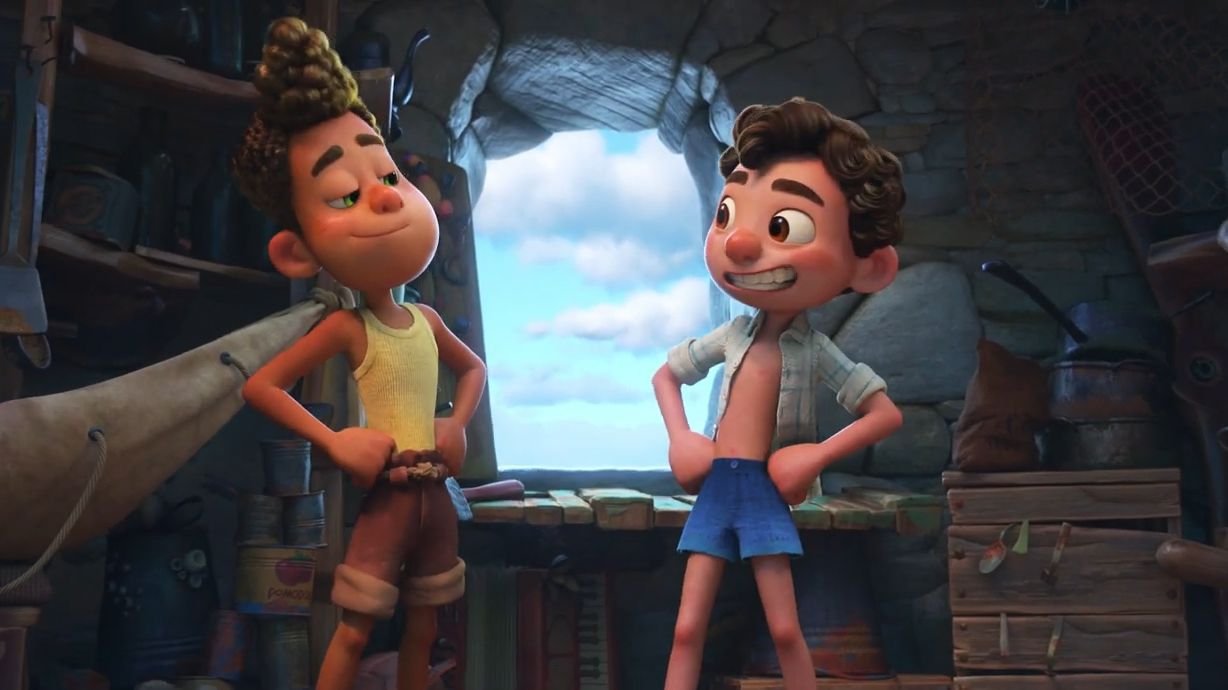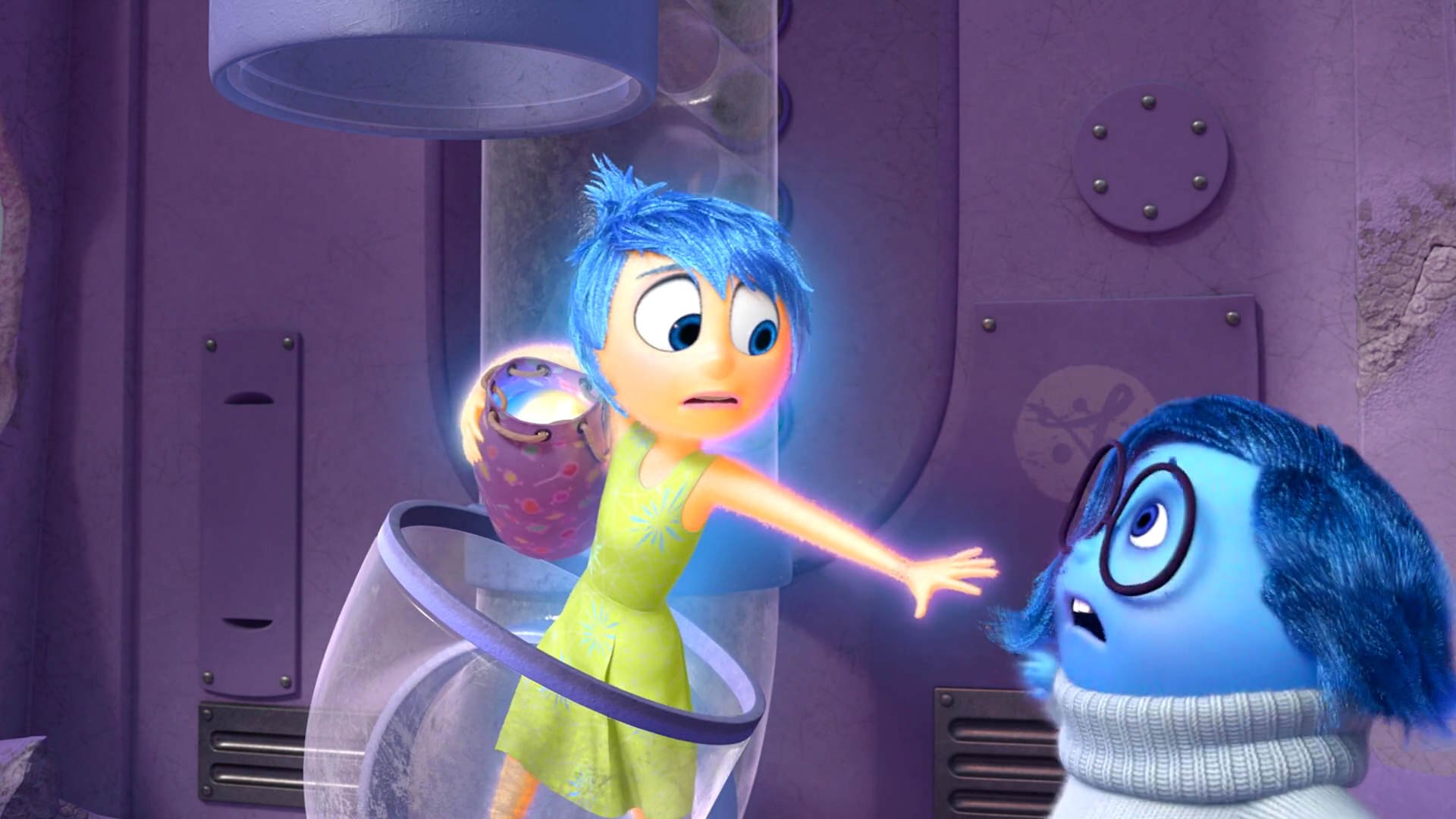LUCA and the Narrative Value of Betrayal
The first time I saw LUCA—my personal favorite of Pixar’s recent films, a wonderful movie that got lost in the shuffle when it was released on Disney+ during the pandemic—there was a moment that made me gasp. It was a moment of betrayal. We’re used to seeing betrayal in films, often by a villain who was pretending to be an ally. But in LUCA, the betrayer was the protagonist, Luca himself. That is a rarer narrative device, though one that Pixar does employ in some of their films. But to what narrative end?
We consider betrayal to be a unique kind of sin. In most cultures, treason demands a harsh punishment, and we collectively abhor those who “stab us in the back”, rather than the front. It seems that regardless of the actual consequences of a betrayal, it comes with an added, compounded, emotional injury. It’s an unfair fight, one that takes advantage of trust that we’ve elected to give someone. And that’s exactly the way Pixar uses betrayal: to signify a protagonist’s lowest moment in their journey towards growth.
In storytelling, the bottom of act 2 is usually a low point. And while it is usually a situational low point—a moment where we sense that all hope is lost, that our heroes might fail—in growth/maturation plots, there is usually also a moral low point for our heroes. And since most Pixar films are stories of growth, it makes sense they’ll include a moral low point.
In INSIDE OUT, there’s a brief moment where Joy thinks she has found a way back to headquarters. Joy spots a recall tube that could get her and Riley’s memories back to safety. But when Sadness tries to join her on this life-saving route, the memories start to turn blue, and tinted with sadness. Joy, who has started to show signs of understanding Sadness’s role, and bonded with her in the dangerous wilderness of Riley’s mind, is still too beholden to her obsession to keep Riley happy. She pushes Sadness away, and takes the tube on her own. In this moment she betrays her growing friendship with Sadness, and even basic human values, essentially leaving Sadness to die—a moral low point no doubt. Joy’s plan backfires, sending her, Bing Bong and the memories into the Memory Dump, where they are soon to be forgotten, forever (situational low point).
Another example: In RATATOUILLE, Remy and Linguini’s partnership allows them both to fulfill their dreams: Remy gets to safely cook in a gourmet kitchen, while Linguini is elevated from his busboy status, and even forms a romantic relationship with fellow chef Colette. However, when success goes to Linguini’s head, he starts to think he might not need Remy, and even takes credit for Remy’s work. This betrayal leads to Remy’s betrayal—where he invites his extended family of rats to an all-you-can-eat buffet in the restaurant’s kitchen.
Unlike Joy, who was mainly betraying a friend, Remy is more blatantly betraying his own values. In the film’s opening, Remy argues with his dad. While his dad insists that as rats they should eat whatever they can get their paws on, Remy argues: “We are not thieves.” He doesn’t want to steal, he wants to create. But his dad warns him about the human world, and at this moment, burnt by Linguini’s betrayal, Remy thinks his dad might be right. So Remy listens to his darker angels and essentially condones stealing, becoming the thief he never wanted to be. In Joy’s case, her growth is simply delayed; in Remy’s case, his moral low point leads him to fall back below where he started, to betray the core ideals he built his life and identity around.
Betrayal can also be used in more subtle ways. Much of Ember’s emotional turmoil in ELEMENTAL comes from intense guilt over what she perceives as a betrayal of her father—her lack of interest in running the store in his stead. While she doesn’t say this aloud until the film’s very end, her immense guilt over even thinking and feeling this way, leads to her repressed emotions all throughout the film. In TOY STORY 3, the only way the toys manage to end Lotso’s reign of terror, is by showing his powerful enforcer Big Baby that Lotso betrayed him too. Big Baby was perhaps never a fan of Lotso’s methods, but they were bonded by the desertion of their owner. When Woody shows Big Baby this wasn’t the case, their bond is broken.
As for the moment that made me gasp in LUCA? It comes when Luca, pretending to be a boy on land, faces a choice. Up to this point, Luca and Alberto—two young sea monsters, who appear like normal boys when they are dry—were cultivating a deep friendship, fueled by a desire to win a vespa in a local competition. It’s a dangerous plan, since the village housing the competition has a long history of fearing and hunting sea monsters.
Luca and Alberto team up with fellow (human) underdog, Giulia. However, when Luca and Giulia bond over a love of learning and science, Alberto gets jealous. Fearful of losing his new best friend, Alberto tries to out Luca, by revealing himself to be a sea monster. But Luca, instead of explaining the situation or defending Alberto, simply points at the now fishy Alberto and screams fearfully: “Sea Monster!”, which accidentally summons the village hunters, who attack Alberto. He barely escapes.
I gasped at this moment, because I never imagined Luca could do something like that. Yes, he longs to assimilate; yes, Giulia means a lot to him; yes, Alberto was being a jerk. But he threw away not only their friendship, but his own, persecuted species. It felt akin to a Jew in Nazi Germany who is “safe” with fake papers, pointing out another Jew to save their own skin. And while that may be my own generational baggage, it is clear that LUCA deals with themes of otherness and persecution. And in that vein, Luca commits an act of self-hate here. Of course, Luca later gets his chance at redemption.
In the film’s climax, as Luca rides his bike in the well-attended race, it starts to rain. Fearing for his friend’s life, Alberto shows up with an umbrella to help and protect Luca, but the film’s villain—the bully Ercole—trips him. Alberto falls into the rain, and is revealed as a sea monster for all the villagers to see. But now Luca knows better. He rides into the rain, revealing his own fishy status, and, risking his own life, saves Alberto. Eventually, with the help of Giulia’s kind dad, the village accepts them as they are.
Moral low points are crucial in adding another emotional and intellectual layer to your story. 2nd acts are often characterized by conflict and discovery, both of which are designed to facilitate change and growth in your protagonist. But just like we wouldn’t like a plot where our protags only win for the last 2/3rds of a movie, the same is true for their inner journey. Just as they stumble against their antagonists, they must stumble in their growth. And often that comes by turning their back on exactly what they are supposed to learn, on their inner better angels.
You can betray a friend. You can betray your group. And you can betray your values. It happens to all of us once in a while, hopefully only in small ways. And when we do stumble, hopefully, like Luca, we get a chance to redeem ourselves. The full arc of Luca perfectly showcases what is the opposite of betrayal, what could be its remedy—sacrifice. If betrayal is turning your back on someone or something you cherished for personal gain, sacrifice is turning your back on personal gain for someone or something that matters more. In fact, one could argue—and Joseph Campbell pretty much does—that the ability to sacrifice in this way is the definition of a hero.



